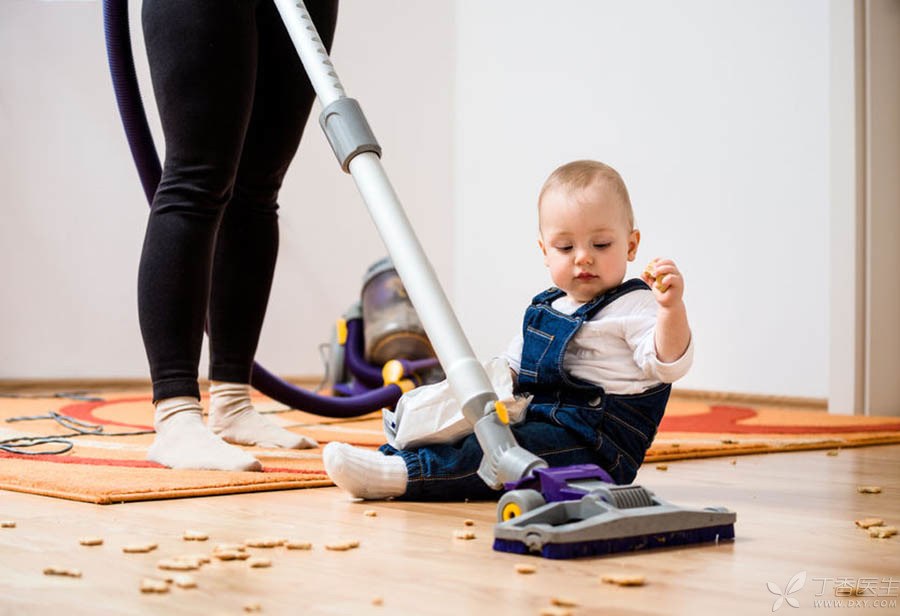
Every mother struggled more than once after giving birth to her baby: Is it work? Or take care of the children at home?
Especially at the end of maternity leave, the feeling of reluctant to leave the baby and worrying about work is simply too uncomfortable.
Full-time baby? Or return to work? Which choice is better?
Dr. Clove invited Dr. Wang Yirui, a doctor of clinical psychology and also a mother, to have a good talk with us on this topic.
No matter which choice, we have to face [gains] and [losses]

Without exception, I have also seriously considered this issue and want to see the thoughts of women with higher education at home and abroad.
Marriage, financial difficulties and self-doubt are these situations more common in stay-at-home mothers’ families? It’s not clear.
Compared with the political correctness of “working and living at the same time”, the self-choice of “I am in charge of my life” is not necessarily wrong. The specific choice may need to analyze their respective advantages and disadvantages and the difficulty of solving the corresponding problems.
[Continue to work] or [Go home and take the baby], this is not a multiple choice question of which is better or worse, they have their own advantages and disadvantages.
No matter how you choose, you must know that your choice will face some what.
If you choose to be a stay-at-home mom-
The advantage is:
- The voice of child-rearing is greater, and it is up to you to take your baby. Have more time to accompany, take care of children and enlighten as soon as possible;
If you devote yourself to your child, you will also lose it:
- Some studies have found that stay-at-home mothers are more likely to be depressed, from [remarkable] to [doing nothing], which may bring about a big psychological gap and make it difficult to adapt to the new pace and circle of life in a short period of time. Although it can be adjusted in the long run, it is hard to avoid loneliness and boredom when taking care of children at home alone. The monotonous life circle may increase communication difficulties with her husband. These experiences are not pleasant and children may also be affected. Parents’ life is a [template] to show their children. Taking babies at home, the slow pace of daily life and poor content of life are not conducive to the cultivation of diligent and self-motivated babies.

If you choose to be a working mother-
The advantage is:
- In addition to the [baby-centered] life, you have a small space to breathe, a small circle to help relieve pressure, and an independent economic ability to make your overall state better. Experience a sense of personal value and achievement in addition to [the baby is well raised], have more confidence in dealing with marriage and family relations, and infect children with confidence and happiness when getting along with children. Let children gradually understand that parents are working hard for [a better life] and [a better world], which is a good example for them.
Correspondingly, you will also fall behind some [regrets]:
- Both of them go to work during the day and have to face various problems corresponding to [intergenerational upbringing]. They need to spend time and energy to understand, adapt and solve them. Milestone moments such as the baby’s first climb, first walk and first jump may not be on the scene, which cannot be said to be a pity.

Which option is easier?
Please note that [taking care of children at home] is best a rational choice after weighing the pros and cons, not [for ease] [for sacrifice]. I’m afraid there is no absolutely relaxed life in this world, and [not leaving the baby for a second] is not a complete maternal love.
Who is easier? This is really impossible to compare and there is no need to compare. Every mother is a unique individual and every family has its own characteristics.
Want to take baby at home full-time? Consider these three points first.

Step 1 Discuss with your spouse
If one spouse resigns, the pressure on the other spouse will inevitably double. At the same time, prepare for the possible decline in the quality of life, think about various ways to cut expenditure and increase revenue together, prepare for possible frequent disputes, and make some necessary agreements, such as [must not say anything], the distribution of child-rearing responsibilities and housework.
Step 2 Prepare yourself
After becoming a stay-at-home mother, you may have fewer and fewer topics with the people around you and your family status may become lower and lower. Therefore, it is best to negotiate with your husband, treat [stay-at-home mother] as a job, and try to reach an agreement with him on the choice of [reducing costs while ensuring quality].
3. Clear a time node and make career plans at the same time.
In fact, the age when babies need the most care is mainly before the age of 3. Therefore, it is suggested to discuss with your husband to prepare for returning to work in the future and prevent [derailment] from being too far away.
If we decide to go back to work immediately after maternity leave, then reliable and stable caregivers and high-quality company during off-duty hours are the topics we must face.
Want to return to work? These two points should also be prepared.

1. Choose the right caregiver
Many family caregivers are the elderly of the previous generation, and experienced child-rearing sisters-in-law is also a choice. I suggest that no matter who is chosen as caregiver, it is best to choose gentle personality, patient and careful care. If you have received certain education, if you can also plan a certain number of benign stimulation activities and accept scientific child-rearing concepts, it is more ideal.
2. Give your baby high-quality company,
The so-called [high-quality] companionship actually depends not on how long it lasts, but on whether the child is happy and feels understanding and acceptance.
Gently caressing, staring at the speech and familiar music are all baby’s favorite activities. They are not only helpful for the development of feeling and language, but also helpful for the transmission of emotion.
For example, when I work at home, Dabao will suddenly appear from time to time, Asked me to play with her. This conversation may not take long, She just wants to know the name of something called what, or play games with her for a while, and then she will be satisfied and play quietly for a while. This is also a kind of company. Once I told her [Mom is working], Dabao thought for a few seconds and answered [Baby is so working]. In this way, the little guy learned the word working for the first time.
Finally, I would like to say that no matter whether your current choice is [going back to work] or [going back to family], they are all good after careful consideration.
There is a saying called: Life, there is no if, this sentence is not so absolute for mother’s choice.
As long as you want, you can choose whether to accompany your baby at home or return to work to continue your career.
In case it is later discovered that the choice already made is not so good, you can change the plan at any time.
Don’t worry, don’t be helpless, this is the problem we must face when we become mothers. Believe in yourself and you can deal with it well.
